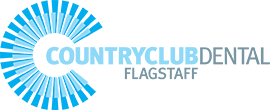When it comes to restoring a confident smile and functional bite, dental bridges are an excellent option. If you’re interested in replacing missing teeth with a dental bridge, you may be wondering what to expect after the procedure. Our experts answer the most frequently asked questions below, and provide some aftercare tips that will ensure a fast recovery.
Dental Bridge Aftercare FAQs
How Soon Can You Eat After a Dental Bridge Procedure?
After a dental bridge procedure, you can typically start eating as soon as the anesthesia wears off. However, it’s crucial that you avoid eating sticky foods for the first 24 hours after getting a dental bridge. Keep in mind that your dentist will provide specific guidelines based on your individual case.
How Long Does It Take to Heal After a Dental Bridge?
In most cases, it only takes a couple of days to heal after getting a dental bridge. You will likely be able to return to your normal routine the day after the procedure. But it’s crucial that you follow your postoperative instructions to minimize the length of recovery.
It’s normal to experience some minor inflammation, swelling, and soreness around the bridge while your mouth heals. You might also notice a slight speech impediment as you adjust to your bridge, but this is also normal. However, if any of these symptoms last longer than a few days, contact your dentist right away.
How Do I Take Care of My Dental Bridge?
Maintaining good oral hygiene is not just important for your health, it also improves the longevity of your dental bridge. Luckily, caring for a bridge isn’t much different from cleaning your natural teeth.
Make sure to brush your bridge with a soft-bristled toothbrush and toothpaste twice a day. Use a non-abrasive toothpaste to avoid wearing down the bridge. It’s crucial that you also floss underneath the bridge daily. If you have trouble, try using a floss threader or an interdental brush. Don’t forget to floss around the supporting crowns and between all of your natural teeth to prevent gum disease.
Caring for your dental bridge also means going to your dental checkups every six months. Bacteria buildup underneath a dental bridge can cause problems like tooth decay and gum disease that might compromise its integrity. Professional cleanings are critical in eliminating bacteria, and dental exams allow your dentist to identify and treat any issues with the bridge as early as possible.
How Long Does a Dental Bridge Last?
Dental bridges are permanently attached to your teeth and are designed to last about 10 years. You can ensure that your bridge lasts as long as possible by practicing good oral hygiene, wearing a mouthguard while playing contact sports, and wearing a nightguard if you suffer from teeth grinding.
Five Dental Bridge Recovery Tips
Following these five tips will promote a smooth recovery and extend the lifespan of your dental bridge:
- Follow the postoperative instructions from your dentist. This may include avoiding certain foods, taking prescribed medications, and practicing good oral hygiene.
- Avoid eating hard, crunchy, and sticky foods, which can damage your dental bridge. You should also temporarily avoid eating or drinking anything hot, cold, or spicy to prevent gum irritation.
- Brush your teeth twice a day for two minutes at a time and don’t forget to floss underneath your dental bridge.
- Kick bad habits like nail biting, chewing on ice, and using tobacco to protect your dental bridge.
- Eat healthy foods and stay hydrated to promote a speedy and comfortable recovery. An optimal diet will be rich in protein, vitamin C, and zinc.
Still Have Questions?
If you are interested in getting a dental bridge and would like to learn more about the procedure, recovery, or aftercare, contact Country Club Dental in Flagstaff. We can replace missing teeth with durable dental bridges or removable dentures. We’re also happy to walk you through the dental bridge procedure so you know what to expect afterward.
Dr. Paul Whitney are both experts who can determine the best treatment for your needs. Give us a call at 928-526-4314 today to schedule an appointment.
Images used under creative commons license – commercial use (1/11/2024). Photo by Marius Christensen on Unsplash


